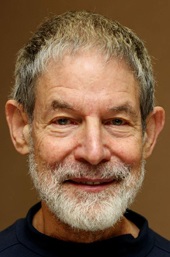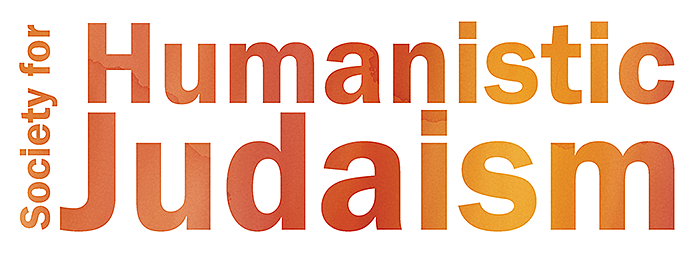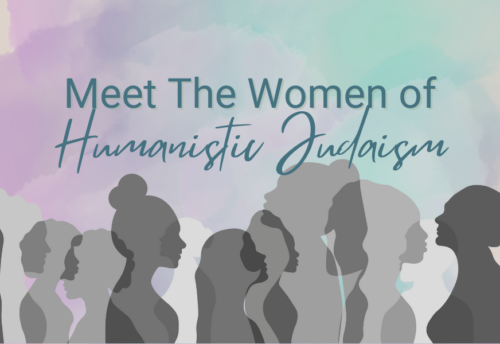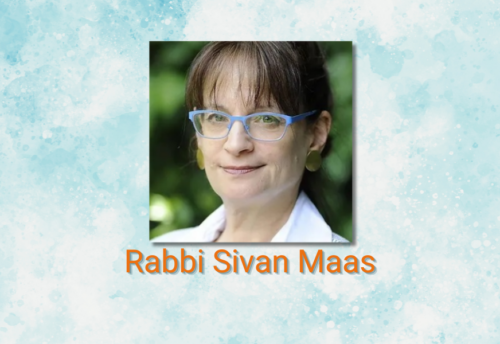
This is a guest post by Herb Silverman, founder of the Secular Coalition for America and a member of the Society for Humanistic Judaism. This piece was originally published in the November-December 2023 edition of the Freethought Society News.
The Crusades were eight military campaigns organized by Roman Catholic popes from the 11th to the 13th centuries. Catholics from Western Europe fought to take back Muslim-controlled land that the Crusaders considered holy to Christianity.

Herb Silverman
I once participated in a crusade, though a very different kind. It was a Billy Graham Crusade in Philadelphia in the early 1960s. When I heard that the Crusade was going to be held at the Convention Hall arena, where I sold refreshments hot dogs and Coca-Cola at sporting events, I asked the Crusade organizers if I could sell refreshments at their event. They said I couldn’t, but they encouraged me to attend what they promised would be a “wonderful personal experience.” I immediately accepted their invitation.
I watched intently as Graham moved an audience in ways I had never seen before. At the end, he encouraged people to come forward and be “saved.” I didn’t even know what that meant, but out of curiosity I went forward. After Graham mumbled a few words about being “saved,” waiting pastors each chose one of us to indoctrinate further.
My “personal” pastor began by asking if I had accepted Jesus Christ into my life as Lord and Savior, to which I said “No.” Additional attempts to close the deal (including warnings of fire and brimstone) were met with similar frustration for him.
When he learned that I was Jewish, he transferred me to a recently converted pastor with a Jewish background. I asked Pastor Two if his parents were alive. When he said they weren’t, I asked, “Is it painful knowing that your devoted parents are suffering the torments of hell?” When he disagreed, I invited Pastor One back into our conversation. The highlight of my evening was watching Pastor One and Pastor Two argue about the afterlife of Pastor Two’s Jewish parents.
Billy Graham was an extremely charismatic speaker, but logic for me was considerably more compelling than charisma. I know I’m in a distinct minority, but I decided that being evangelized could be a lot of fun.
What I learned from the Billy Graham Crusade (though I hadn’t realized it at the time) was that I’m a counter-evangelist. I don’t usually initiate discussions with theists, but I sometimes feel I’m as much on a  counter-mission as they are on a mission. Because I’m now outspoken about my atheism, some theists call me an “Evangelical Atheist.” By engaging impassioned theists in a conversation they never had before, I hope to create a spark that will start them thinking about different paths.
counter-mission as they are on a mission. Because I’m now outspoken about my atheism, some theists call me an “Evangelical Atheist.” By engaging impassioned theists in a conversation they never had before, I hope to create a spark that will start them thinking about different paths.
In one sense we are all evangelists for issues that matter to us. The question isn’t whether to proselytize, but how and how often? Were I on the “soul-saving” team, a fellow theist who stood on a corner shouting epithets at sinning passersby would embarrass me, so I’d never be a screaming atheist or go door-to-door spreading the word of God’s nonexistence. I hope, though, that more atheists and humanists will feel comfortable engaging in thoughtful conversations when questioned about their worldview.
Whatever the outcome in talking to theists, thinking and discovering are good. Most of us in my era grew up hearing that it was rude to discuss sex, politics, and religion. (Actually, nobody told me not to discuss sex, because sex was not even mentioned in my house.) Politics and sex are no longer taboo, but criticizing a person’s faith is still considered socially unacceptable. Atheists are often called insulting or hateful for critically discussing religion in a way that is commonly accepted in political opinion pieces or restaurant reviews.
Speaking of restaurants, a few years ago, several of us at an atheist convention went out to dinner. While we were eating dessert, a man at the next table came over to me and asked, “Are you an insurance adjuster?” I had no idea what he was talking about. He explained that his colleagues there were all insurance adjusters, and they liked the quote on my shirt from someone they hadn’t heard of, humanist icon Carl Sagan: “Extraordinary claims require extraordinary evi-dence.” I finally understood what accident reports and religious beliefs have in common. We had a good laugh and discussed our different worldviews. Theirs was definitely for profit, and ours was both non-profit and non-prophet.
I’ve welcomed Jehovah’s Witnesses into my house, frequently to their surprise. More often than not, they’ve left before I was ready to end the discussion. None of them wanted to read the book I recommended, Leaving the Witness. The book is probably on their forbidden list.
I once went with my wife, Sharon Fratepietro, to a Scientology storefront. The Scientologist in charge invited us to take a personality test. Sharon passed and was asked to join, but the leader said my personality test (which I answered honestly) revealed that I would not be a suitable member. Later Sharon received increasingly urgent mail requests to join their cult, until they finally concluded that her case was as hopeless as mine.
I don’t know of any Scientology rejects besides me. I thought they were as anxious for members as a caller from an Arthur Murray dance studio, who once told me I’d win a free dance lesson if I could answer, “Who is buried in Grant’s tomb?” I responded, “Lincoln?” She said, “That’s close enough. Congratulations, you are the winner of a free dance lesson.” I’ve known many easy graders in my life, but none as lenient as she.
I also showed Sharon a side of Judaism she had never seen. I took her to a free dinner sponsored by Chabad Lubavitch, an ultra-Orthodox Jewish sect. Sharon and I could not talk to each other at dinner because men and women had to be seated at separate tables. After dinner we watched a short film honoring their recently departed leader, Rabbi Menachem Mendel Schneerson, whose return as messiah many attendees were hoping to witness soon.
The film showed Schneerson telling his sect never to make territorial compromise in Israel. Afterward, I asked the host, “Would you be willing to cede a little territory for a 100 percent guarantee of peace?” He looked as if he couldn’t believe a Jew would ask such a question and said, “How can we give away a gift  God promised to us?” Ever since, I’ve been pessimistic about peace breaking out in the Middle East, with such uncompromising religious extremists on all sides.
God promised to us?” Ever since, I’ve been pessimistic about peace breaking out in the Middle East, with such uncompromising religious extremists on all sides.
When members of the Unification Church (otherwise known as Moonies) were proselytizing on my College of Charleston campus along with other religious groups, campus authorities told the Moonies they would have to leave because they didn’t have a faculty sponsor. Lots of Christian groups had faculty sponsors, so I offered the Moonies my services as faculty sponsor. No religious test was required, and they gratefully accepted.
When the Moonies asked if I was a supporter, I told them I thought their beliefs were bizarre, but that all points of view should be allowed on campus. I didn’t want Moonies to gain converts, but I did want to see students exposed to different beliefs. Most students were Christians who knew nothing of other religions, and I hoped questioning others might inspire some to question their own religion.
Many atheists don’t understand why I “waste” time focusing on nonexistent deities. Since I was once an apathetic atheist, I can identify with such concerns. I used to see no more need to promote atheism than to promote a round Earth. Though a Flat-Earth Society still exists, its supporters don’t have the political clout of the well-organized Religious Right. If they did, I’d probably join a round-Earth organization, especially if some school boards wanted “flat-Earth theory” taught in science courses.
Atheists as a class are well-educated, productive, and prosperous, but we’re not as organized as many minorities that have fewer numbers. Atheists are not very influential because most remain in the closet, often out of apathy or fear. It’s easy for atheists to stay in the closet. Blacks and women can’t, while LGBTQ people can lead secret lives only with great sacrifice. They have changed public perception simply by having large numbers come out of their closets, and so it could be with atheists. When people tell me I’m the only atheist they know, I respond, “No, I’m not. You know hundreds. I’m the only one you know who has been public about it.”
Attitudes will change rapidly when people learn that they have friends, neighbors, and even family members who are atheists. We should be active politically in promoting strict separation of religion and government. To gain more visibility and respect for our secular viewpoints, we need to put an end to many stereotypes that theists have about atheists, which ideally should lead to them treating us as individuals rather than as members of an undesirable class. This is happening throughout the country, though not as quickly as it should. We encourage all atheists to join groups that support our causes, and to be open about their religious beliefs. This is just one more civil right that our country should support.




I enjoyed this article. I think that the author hasn’t met a real religious fanatic yet because he is still alive.